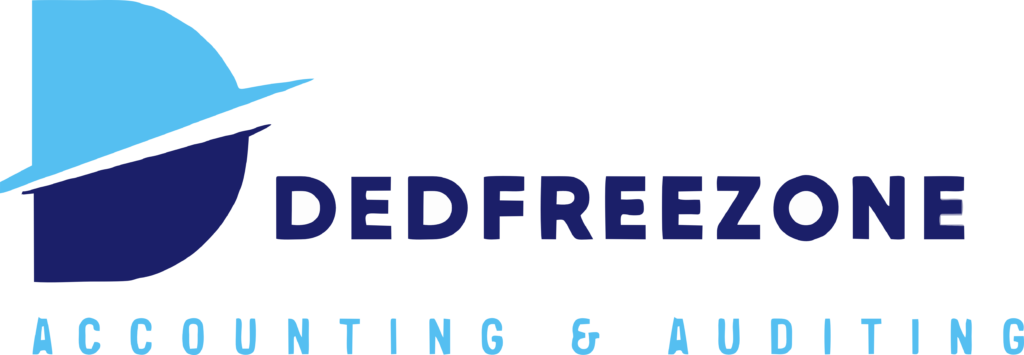Bookkeeping
Professional Bookkeeping Services to Simplify Your Finances Running a business comes with countless responsibilities, and managing your finances is one of the most critical tasks. However, keeping accurate and up-to-date financial records can be both time-consuming and overwhelming. That’s where our professional bookkeeping services come in. We offer a complete range of tailored bookkeeping solutions designed to help you manage your financial records efficiently and effectively. Our services ensure your books are accurate, compliant with regulations, and organized, empowering you to make informed decisions for your business.
Who Benefits from Our Bookkeeping Services?
Our services are designed to support businesses of all sizes and types.
Small and Medium-Sized Businesses:
Reduce the burden of managing daily finances and gain the support you need to scale your operations.
Startups:
Lay a strong foundation for financial success with accurate and efficient bookkeeping from the start.
Freelancers and Independent Contractors:
Simplify your financial record-keeping while focusing on your passion and clients.
Established Enterprises:
Streamline complex financial processes with professional bookkeeping expertise.
Stop stressing over your finances and let us handle the numbers. With our professional bookkeeping services, you’ll enjoy accurate records, insightful reports, and the freedom to focus on your business goals.

"" Streamline your financial management with our professional bookkeeping services. Whether you’re a small business owner, a startup founder, a freelancer, or an established enterprise, we provide accurate records, insightful reports, and the freedom to focus on your goals ""
Why Choose Our Bookkeeping Services?
Managing finances is more than just a task—it’s the backbone of your business. Here’s why partnering with us makes all the difference:
Expert Accuracy
Every financial transaction is meticulously recorded and reviewed to ensure your financial records are error-free and reliable. From balancing accounts to reconciling statements, we handle every detail with precision.
Customized for Your Needs
No two businesses are the same. We adapt our bookkeeping services to suit your specific requirements, whether you’re a startup, small business, or enterprise.
Enhanced Security and Confidentiality
Your financial data is safeguarded with cutting-edge encryption and strict privacy protocols. Trust us to maintain the highest standards of security and confidentiality.
Cross-Industry Expertise
With experience spanning various industries, including retail, construction, healthcare, and e-commerce, we provide specialized services tailored to your sector.
Stress-Free Financial Management
By entrusting us with your bookkeeping, you free up valuable time to focus on what matters most—growing your business.
- Build agility, adaptability and resilience into your business
- Determine facts quickly and accurately
- Navigate and effectively manage crisis
- Restore business value after an impasse
- Innovate and emerge stronger
- Build agility, adaptability and resilience into your business

" Tailored bookkeeping solutions for every industry, from retail and construction to healthcare, technology, and farming. Let us help you manage your finances effectively, no matter your business type ""
How DED can help
Our Forensics specialists help clients protect business value and recover from crisis.
With decades of extensive industry experience supporting organisations through
critical challenges, our teams of professionals provide concrete, actionable
advice to design and guide strategy. Advanced technology powers a suite of
proven tools and services. Forensics specialists and analysts apply battle-tested
skills and knowledge.
Financial reporting involves the preparation and presentation of financial statements and related information to provide a clear and accurate picture of an organization’s financial performance and position. Here are the primary components:
Income Statement (Profit and Loss Statement)
Summarizes revenue, expenses, and net income or loss over a specific period.
Highlights the profitability of the organization.
Balance Sheet (Statement of Financial Position)
Shows assets, liabilities, and shareholders’ equity at a specific point in time.
Provides insights into the organization’s financial stability and liquidity.
Cash Flow Statement
Tracks cash inflows and outflows across operating, investing, and financing activities.
Assesses the organization’s ability to generate and manage cash.
Statement of Changes in Equity
Details changes in ownership equity during a reporting period.
Includes contributions, distributions, and retained earnings.
Notes to the Financial Statements
Offers detailed explanations and additional context for figures in the financial statements.
Includes accounting policies, contingent liabilities, and significant transactions.
Management Discussion and Analysis (MD&A)
Provides insights into the organization’s performance, strategies, and future outlook.
Discusses risks and opportunities impacting financial results.
Compliance Reporting
Ensures alignment with regulatory standards such as GAAP or IFRS.
Demonstrates adherence to legal and tax obligations.
What Backlog Accounting Includes?
Tracking Pending Tasks or Orders
Maintaining a record of unfinished projects, tasks, or customer orders.
Categorizing backlogs by priority, department, or delivery date.
Revenue Recognition
Assessing unfulfilled orders for their potential contribution to future revenue.
Monitoring how backlogs align with financial reporting and compliance requirements.
Capacity and Resource Planning
Evaluating whether current resources can meet the backlog demand.
Allocating workforce, materials, or equipment to address pending items effectively.
Workflow Optimization
Identifying bottlenecks or inefficiencies causing delays in completing tasks.
Implementing strategies to streamline processes and reduce backlog volume.
Financial Impact Analysis
Estimating the financial implications of delayed orders or projects.
Assessing penalties, lost opportunities, or customer dissatisfaction due to prolonged backlogs.
Customer Communication
Keeping clients informed about delays and expected timelines.
Managing customer expectations to maintain trust and satisfaction.
Forecasting and Decision-Making
Using backlog data to predict future workloads and revenue trends.
Informing business decisions such as hiring, outsourcing, or scaling operations.
Compliance and Reporting
Ensuring backlogs are accounted for in compliance with industry regulations.
Preparing detailed reports for internal stakeholders or external auditors.
Accounting outsourcing involves hiring external professionals or agencies to manage a company’s accounting and financial processes. This allows businesses to focus on their core operations while ensuring accurate financial management. Outsourcing accounting tasks can be cost-effective, provide access to expert resources, and improve compliance with regulatory standards.
What Does Accounting Outsourcing Include?
Bookkeeping and Record Maintenance
Managing day-to-day financial transactions.
Maintaining general ledgers and financial records.
Reconciling bank and credit card statements.
Financial Reporting
Preparing balance sheets, profit and loss statements, and cash flow reports.
Generating monthly, quarterly, and annual financial statements.
Customizing financial reports as per business needs.
Accounts Payable (AP) and Accounts Receivable (AR)
Managing vendor payments and invoices.
Handling customer invoicing and payment collections.
Monitoring overdue accounts and credit controls.
Payroll Management
Calculating employee salaries, taxes, and benefits.
Generating payslips and processing payments.
Ensuring compliance with tax laws and labor regulations.
Tax Preparation and Compliance
Preparing and filing tax returns.
Managing indirect taxes such as VAT or GST.
Ensuring adherence to local, state, and federal tax laws.
Budgeting and Forecasting
Assisting in the preparation of budgets and financial plans.
Conducting financial analyses for decision-making.
Providing forecasts based on market trends and business performance.
Audit Support
Organizing financial documents for internal and external audits.
Providing expert support during audits to meet compliance standards.
CFO and Advisory Services
Offering financial strategy and planning.
Advising on cost-saving opportunities and investment decisions.
Implementing financial control measures.
Compliance with Regulations
Ensuring adherence to financial reporting standards (e.g., GAAP, IFRS).
Monitoring changes in financial laws and standards.
Customization for Industry Needs
Tailored accounting practices and standards specific to the industry (e.g., manufacturing, healthcare, real estate).
Specialized reporting formats to align with regulatory or operational requirements.
Industry-Specific Cost Management
Identification and tracking of unique cost drivers such as production costs in manufacturing or patient care costs in healthcare.
Use of appropriate costing methods, such as job costing, process costing, or activity-based costing.
Revenue Recognition and Compliance
Adhering to industry-specific revenue recognition standards, such as percentage-of-completion for construction or subscription-based models for SaaS companies.
Ensuring compliance with regulations and standards, including IFRS, GAAP, or other local requirements.
Performance Metrics and Benchmarking
Tracking and analyzing key performance indicators (KPIs) relevant to the industry.
Comparing financial performance against industry benchmarks or peer companies.
Asset and Inventory Valuation
Accounting for specialized assets such as equipment, intellectual property, or biological assets (e.g., in agriculture).
Inventory valuation methods tailored to industry needs, such as FIFO, LIFO, or weighted average.
Regulatory and Tax Compliance
Navigating industry-specific tax regulations and incentives (e.g., R&D tax credits in technology).
Ensuring adherence to environmental, safety, or other regulatory standards.
Risk Management
Identifying and mitigating financial risks specific to the industry (e.g., commodity price risks in agriculture or energy).
Creating reserves or provisions for unforeseen industry-specific liabilities.
Capital and Financing Structures
Managing unique funding sources, such as government grants for education or healthcare.
Tailoring financial strategies to the capital-intensive or cyclical nature of certain industries.
Technology Integration
Leveraging specialized software or systems for accounting and reporting, such as ERP systems for manufacturing or EHR-integrated accounting for healthcare.
Sustainability and ESG Reporting
Incorporating environmental, social, and governance (ESG) factors into financial reporting for industries where sustainability is critical (e.g., mining, energy).
Industries We Serve
We cater to businesses across a wide range of industries, offering tailored bookkeeping solutions to meet their unique needs:
- Retail and E-Commerce
- Construction and Real Estate
- Healthcare and Wellness
- Professional Services
- Nonprofits and Charities
- Manufacturing
- Technology and Startups
- Hospitality and Tourism
- Transportation and Logistics
- Education and Training
- Agriculture and Farming

